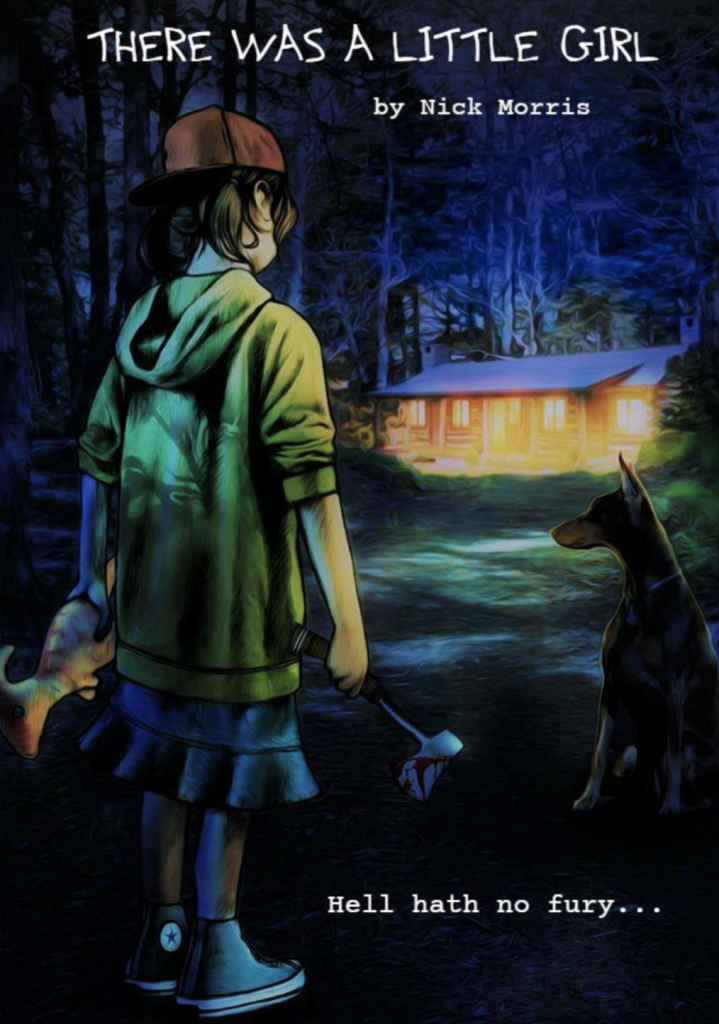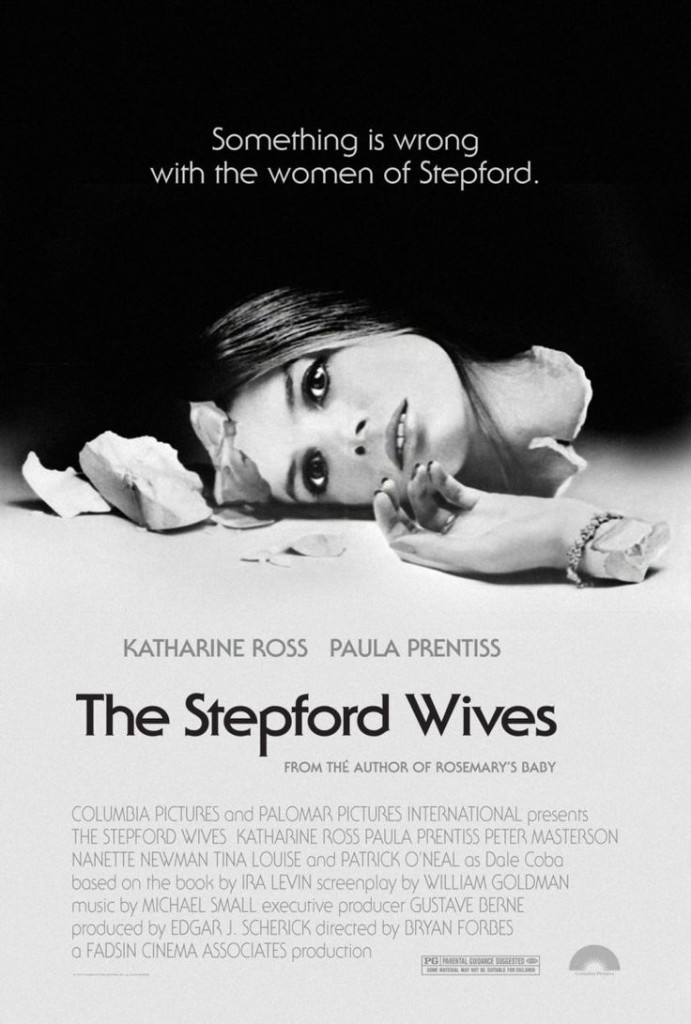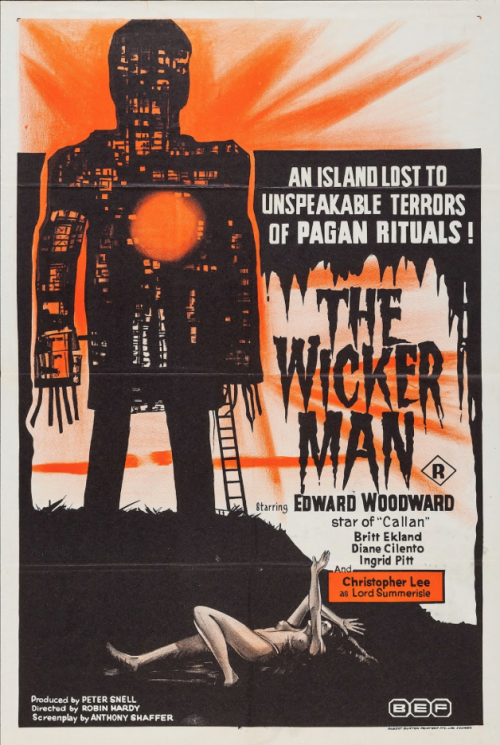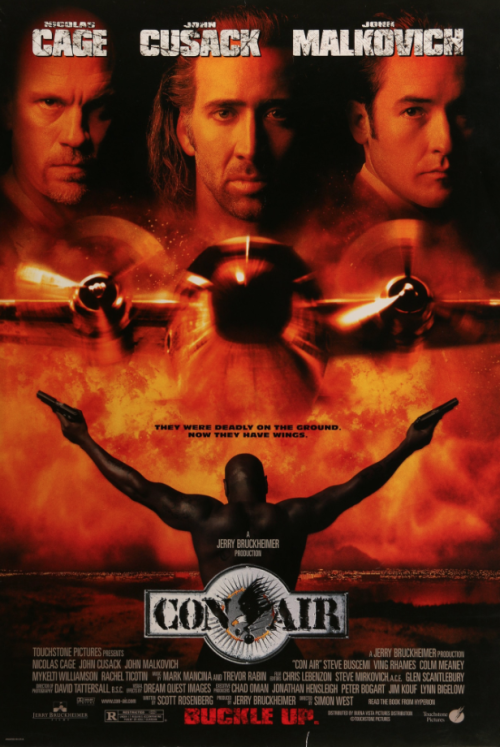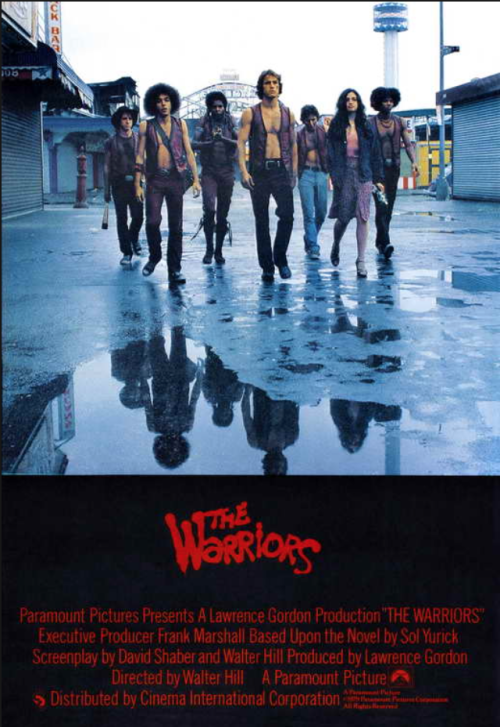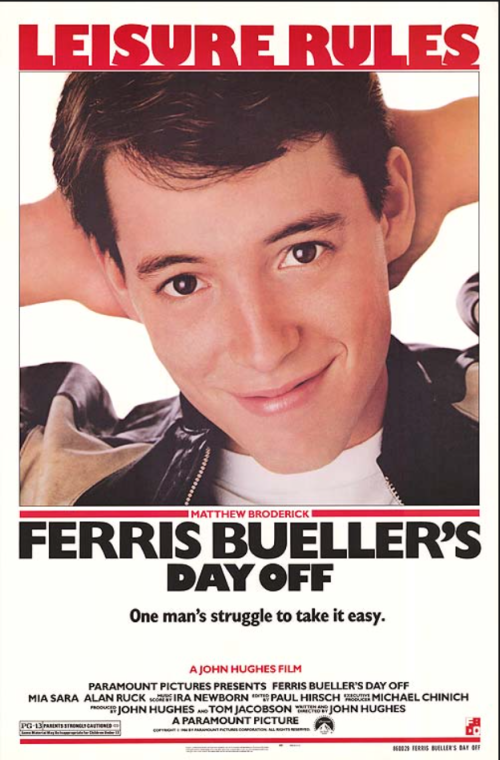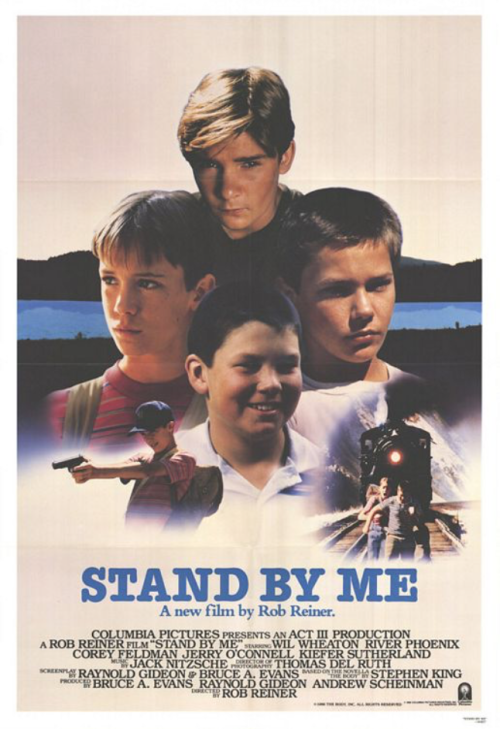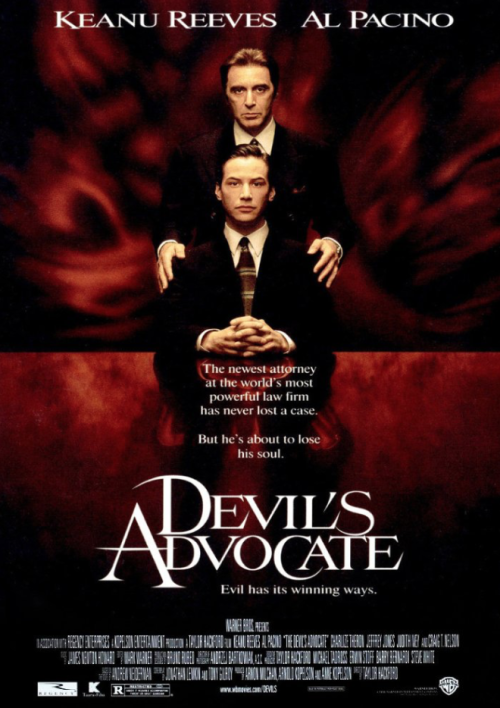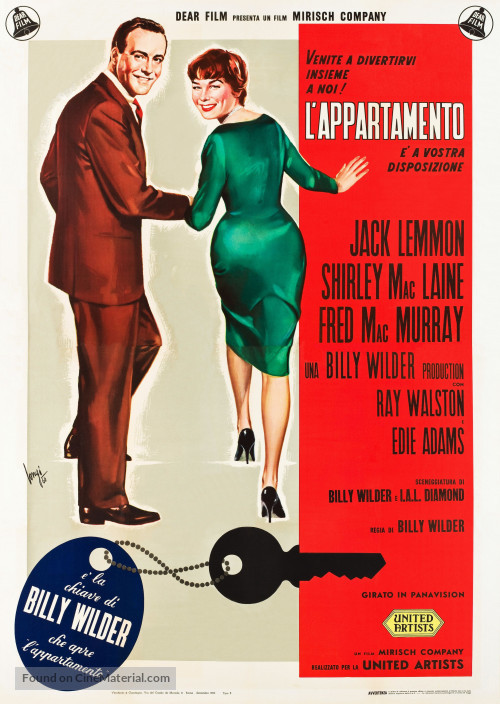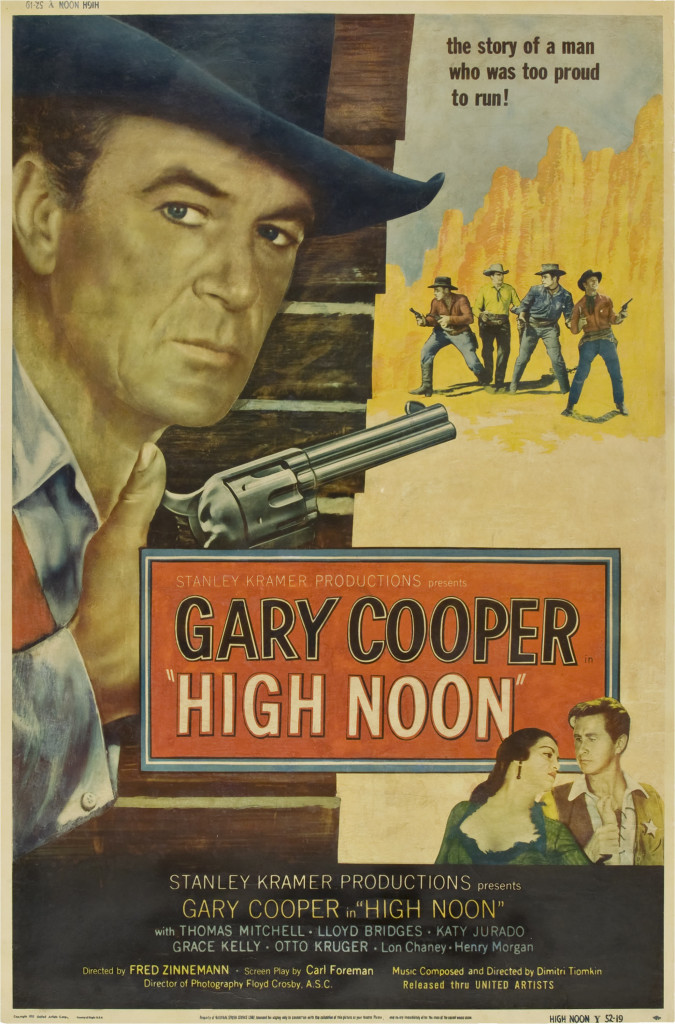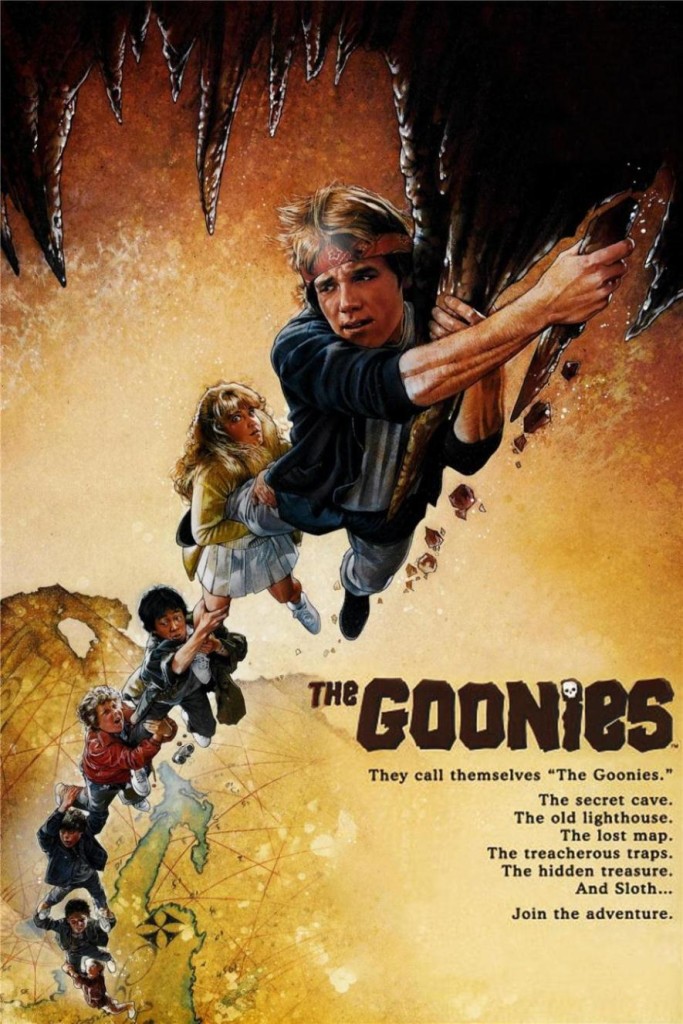All I do with every free minute I have is watch McGregor-Mayweather press conferences, then the post press-conferences of those press conferences. And then the reactions of people to those press conferences. I’m telling you right now – somebody’s going to make a movie about this some day. It might as well be you.
Here’s how to play Amateur Offerings if you haven’t played before: Read as many of this weekend’s scripts as you can and VOTE for your favorite in the comments section. Winner gets a review next Friday.
If you’d like to submit your own script to compete on Amateur Offerings, send a PDF of your script to carsonreeves3@gmail.com with the title, genre, logline, and why you think your script should get a shot.
Title: The Last Moon
Genre: Supernatural Horror
Logline: On the night of a full moon a man reveals to his brother he was attacked by a werewolf on a business trip to Vancouver and is now cursed. It might be the ranting of a madman, but as doubt creeps in and midnight approaches the brothers’ reunion takes a disturbing turn. A chilling thriller in the vein of 10 CLOVERFIELD LANE but with a supernatural twist.
Why You Should Read: I wrote this very contained script so I could produce/direct as per Carson’s advice about the best way to get your career going. I believe there is also, as per Carson’s advice!, a human condition aspect to the story amidst its thriller/horror genre, or at least I intend there to be. It’s a werewolf story but my goal here was not to write/produce a gory b-movie, instead I asked myself the question what might a Hitchcock or Polanski micro-budget werewolf movie be like? So more psychological-suspense genre than action/gore horror was the intention, also taking that route so the film can be made on a micro-budget. I also created a mock-poster to get things going as I am determined to produce/direct The Last Moon in the fall and want to make the script as good as it can be before then so any feedback I get should I be selected would be invaluable to the development process. I read the site every day so I look forward to seeing the other submissions regardless of the fate of mine so good luck to all.
Title: Hellpig
Genre: Horror/Comedy
Logline: When pipeline construction encroaches on its pristine Dakota Badlands territory, a giant prehistoric pig creature unleashes hell on a group of unsuspecting humans, who must band together in order to survive.
Why You Should Read: Longtime SS lurker here, ready to throw my script into the pit. Hellpig is a heapin’ helpin’ of action, gore and camp with a Sharknado tone, a unique monster and buckets of blood. Thanks to Carson and everyone for the opportunity and the reads.
Carson Bonus: 5 Scriptshadow Points for the best “Hellpig” poster tagline!!
Title: Margot
Genre: Psychological/Supernatural Horror
Logline: “A troubled teenage girl discovers a diary that links her to a beautiful socialite from over 200 years ago who represents everything she is not and everything she will do anything to be.”
Why You Should Read: My name is Thomas Mann (no relation to the German master, unfortunately!). I’m 25 and from the UK. Over the last couple of years I’e placed in the Top 20 of Launching Pad contest, quarter finals of Screencraft Horror, semifinals of Screencraft Family Friend contest and finalist of the BBC Writersroom. — You should give this script a read as it looks into some of the most current themes effecting the youth of today. It shows how easily manipulated kids are and the razor wire they walk during the tumultuous teenage years. Also, it’s fucking scary and has massive franchise potential.
Title: Star Crossed
Genre: Sci-fi/Fantasy
Logline: A young couple wish upon a falling star, then must save themselves and their families, from the alien creatures that fell to earth aboard the meteor they wished upon.
Why You Should Read: My name’s Sal. I’ve been posting on Script Shadow for about three years now (not all under my government name). I’ve been sitting on the Amateur Weekend sidelines for a good long while now, talking all types off stuff, so this is my bid to get off the sidelines and onto the playing field. — This is a genre take on Romeo and Juliet that I doubt anybody asked for, but felt compelled to write anyway. It runs the two teens at the heart of the story through a crazy night, filled with actions and emotions that bridge the above listed genres and more. There is also a definite surprise or two in store. And most importantly, the story is faithful to the spirit at the heart of the premise. It’s a story about love and family. If the title and logline strike you as even remotely interesting…give it a whirl.
Are you ready… for Die Hard with a 9 year old girl?
Genre: Horror/Thriller
Premise: After witnessing the murder of her daddy, nine-year-old Becky and her dog set out to teach the scumbags responsible that Hell hath no fury like a pissed-off little girl with nothing to lose.
Why You Should Read: It’s my belief that somewhere deep within the human psyche there exists a zone of intense fury that, thankfully for most of us, will never manifest itself. A level of rage that can only be triggered by a morally reprehensible and personal transgression – like the murder of a loved one. That’s the core idea that kept insisting I write this script. And the most compelling perspective I could think of to explore that idea from was that of a young kid. So I knew going in that it could be polarizing and striking the right tone would be tricky. But I’m very pleased with how it’s come together and would really love to hear the thoughts of the ScriptShadow community. Thanks for looking!
Writer: Nick Morris
Details: 93 pages
A long long time ago I remember seeing a trailer for a movie called “Blue Streak.” It starred the great one himself, “Big Momma’s House” actor Martin Lawrence. The setup for the movie was: Martin Lawrence’s criminal protagonist knows the police are about to catch him for stealing a diamond, so he hides the diamond in the ceiling of a building under construction. He’s later caught and sent to prison. Two years later he gets out and comes back to retrieve the diamond. Only now the building is… a police precinct. So Martin Lawrence must pose as a cop to retrieve the diamond.
When I saw that trailer, I thought to myself, “That has to be the greatest setup for a movie ever!” I mean, what a clever concept. Now since then, I no longer believe it’s the best idea ever. But it’s still a damn crafty idea. As a plot device, it’s as clean a setup as you’re going to get. Someone has to ditch something illegal then come back to get it later, except now the conditions aren’t ideal for retrieval.
That’s the setup for today’s script. But the question we’re all wondering is, can it survive without a role for Martin Lawrence?
Jeff is driving his 9 year-old daughter, Becky, up to their cottage with their two dobermans, Diego and Dora. Becky’s still reeling after the death of her mother and is furious that Jeff is bringing up a new woman for Becky to meet, Kelly. Jeff assures Becky that no one can ever replace mom, but to please give Kelly and her 5 year-old son, Ty, a chance.
Becky’s not having it, storming off to her tree-house after Kelly and Ty arrive. Little does Becky know, her tantrum may have saved her life. Four escaped convicts, leader Dominick, muscle Apex, pervert Cole, and pedophile Hammond, descend upon the house looking for a key Dominick hid there ten years ago.
The four rough up Jeff, Kelly, and the kid, asking for the key, before Dominick realizes a young girl is out there, and she may hold the literal key he’s been looking for. So Dominick sends his boys out to go look for her, but Becky quickly outsmarts them. And when she gets Cole in a compromising position, she slams a broken wine-glass handle through his eye, killing him. It’s on!
(spoiler) Unfortunately for Becky, Dominick blows Jeff’s head off, which technically makes Becky an orphan. It also makes her pissed. So while Dominick’s men run around the property in search of that key, Becky runs around in search of revenge. And she’ll use any graphically violent means possible to get it!
One of the things we talk about here is irony. A big tough muscular guy working as a bouncer is expected. A small weasly geek with glasses working as a bouncer, and being good at it, is ironic. You’re looking to add irony wherever possible in a screenplay because it’s one of those things that, when done well, works like a charm.
Nick took that route here. Instead of a tough-as-nails New York Cop running around a property killing bad guys, Nick inserts a clever 9 year-old girl. It’s ironic, so it’s good, right?
Well, the thing with screenwriting is that sometimes rules collide. Something you’re told you should do overlaps with something you’re told you should never do, and a judgement call needs to be made. You can make the argument that There Was A Little Girl violates one of the most important rules in screenwriting: suspension of disbelief.
Is it believable that a 9 year-old girl could take down a group of big burly criminals in a non-comedic setting? I’d have a tough time believing that 9 year-old girl would have the strength to even stab someone with a wine glass handle.
However, there may be a solution to this. One thing I could buy into was a 9 year old girl with two full-grown trained Dobermans killing a group of men. If you kept both dogs alive and she used them for the bulk of her attacks, I might be able to buy into that. Maybe they were even fight dogs that Jeff rescued. So they have killing in their DNA.
The thing I’m more concerned with in There Was A Little Girl, though, is the dialogue. It lacks color. Throughout the first half the script, almost every line of dialogue is very basic, one or two lines. There’s zero spice. Here’s an example. Jeff greets Kelly when she arrives…
“Man, I have been waiting for this.” “Me too (looks around) Wow, you weren’t lying. This is beautiful!” “Thanks. You found it no problem?” “Yeah, well, I found it. Your sketchy-ass directions were no help. Thank God for GPS.”
‘Sketchy-ass directions’ is as colorful as the phrasing gets in this script. And it’s rare.
Look, dialogue has always been a weakness of mine. I’m aware of how difficult it is to write. But you at least have to try. Add some color SOMEWHERE. Here’s Dominick’s longest chunk of dialogue in the script: “Christ. I do not need this shit right now, Apex. Okay? There’s no time. There’s just no fucking time. I’ve been here too long already. They’ll be out searching by now. Door to door. Even if they don’t remember this place, they’re still gonna eventually show up here. Right?!”
The sentences are all very short, very to-the-point. There’s zero color. Check out Tommy Lee Jones’s famous line in The Fugitive: “Alright, listen up, ladies and gentlemen, our fugitive has been on the run for ninety minutes. Average foot speed over uneven ground barring injuries is 4 miles-per-hour. That gives us a radius of six miles. What I want from each and every one of you is a hard-target search of every gas station, residence, warehouse, farmhouse, henhouse, outhouse and doghouse in that area. Checkpoints go up at fifteen miles. Your fugitive’s name is Dr. Richard Kimble. Go get him.”
Is it fair to compare Dominick’s line to one of the most popular movie lines in history? No. But I’m trying to make a point. You need to do more with dialogue than just keep the plot moving. Especially in a script like this where you have criminals. Criminals are ideal vessels for spouting colorful dialogue. That’s the first thing I’d tell Nick to do here – do a dialogue pass and FIND THESE CHARACTERS’ VOICES!
Lastly, the plot is too predictable. I was way ahead of the script, often waiting for the writer to catch up to me. (spoiler) Jeff’s death might have been a surprise had I not read the logline. But that was it.
I’ve found that you can sometimes get away with a predictable plot. But only when the character development is strong. In other words, you’ve got to give us one of the other. You can’t give us neither. And There Was a Little Girl had neither. Apex’s conscience was the closest thing we got to a character arc. We needed more.
This is the second amateur script I’ve read in a row (not last Friday’s script, but a consultation) where the writer could’ve benefited from more time with the characters before the inciting incident. That would’ve allowed us to give the characters clearer flaws so we knew what they needed to work on. I know everyone’s afraid that if they start the script too slow that the reader will get bored. But if you give us a teaser that rocks our world (and There Was a Little Girl had a pretty good teaser), you can take your time setting up the characters before the inciting incident occurs. I barely knew Kelly before Dominick showed up. And since she’s the one who survives between her and Jeff, that was a problem, since I could care less about a woman I barely knew.
I like the marketing image of a girl (who will need to be older) with two vicious dobermans staring into a house at night. But this is a tricky one. Will people buy tickets to a movie with this young of a lead that’s this violent?
Script link: There Was A Little Girl
[ ] What the hell did I just read?
[x] wasn’t for me
[ ] worth the read
[ ] impressive
[ ] genius
What I learned: How do you add color to dialogue? Here’s a trick. Think of all the people in your life, past and present, who have weird/unique/fun/interesting ideas/thoughts/speech-patterns/obsessions. Find one that’s similar to your character and write the character the way that person speaks. I was briefly friends with a guy who’d spent a year in China. All he could talk about when you brought up anything was how differently they “did it in China.” It became so annoying that I Peking ducked out of that friendship. However, those are the types of people you’re looking to for inspiration if you want to add color to dialogue.
Looking for a great idea for your next script? You can attempt to come up with that rare genius concept that, somehow, after 100 years of cinema, nobody has thought of yet. OR you can take cinema history and make it work for you.
One of the best ways to come up with a kick-ass movie concept is to find something that did well at least 20 years ago (an adequate amount of time for everyone except cinema geeks to have forgotten about it), and reinvent it.
I’m not talking about remakes here. No no no. Not only are those unoriginal. They’re also costly. You actually have to have the rights to the movie to remake it. Instead, you take an old movie concept and you change one or two of the key variables, inventing a totally new movie!
You guys remember Taken, right? Guy goes to save his kidnapped daughter? That movie was a reinvention of the Arnold Swarzenegger movie, Commando. The classic film, Rear Window? It’s been reinvented a number of times. For example, in 2007, with the film Disturbia. They changed the age of the hero (from a man in his 30s to a teenager) and the reason he was stuck in his house (he had an ankle monitor instead of being in a wheelchair).
Now, not every movie was meant to be reinvented. The Eddie Murphy movie, Coming to America, is too goofy to be made today. E.T. was so specific to the 80s, a current version wouldn’t work. Auteur-driven movies, like Pulp Fiction, also lack reinvention DNA.
But there are lots of movies that are perfect for reinvention. Jordan Peele (Get Out) reinvented Guess Who’s Coming To Dinner simply by changing the genre to horror. Dan Gilroy reinvented Taxi Driver by placing his hero in a late night news van instead of a cab (Nightcawler).
But there is no perfect formula for reinvention. You simply look at an old movie and start asking “What if” questions. What if I changed the genre? What if I changed the age of the hero? What if I added a supernatural twist? What if I moved it from the city to the country? What if I told the story from a different character’s perspective? The amount of questions you can ask is endless. Just keep going until you find something cool.
To get you started, here are 10 movies ready to be reinvented for modern audiences. I’m going to rank them from weakest to strongest. Care to guess the number 1 suggestion? It has been the movie Hollywood has been trying to reinvent for over two decades now. And nobody’s figured it out. Will you?!
10 – The Stepford Wives – I like horror that lives just off the main strip. Get Out is a perfect example of that. It’s nontraditional horror. As far as I’m concerned, suburbia is an underutilized element in horror. Suburbs can be terrifying. And it seems like we’re living in a new age where a suburb involved in a horrific conspiracy can make a huge statement about society. And scare the hell out of us in the meantime.
9 – The Wicker Man – Dude goes to an island to look for a missing person. Bad shit happens. The marketing is already gift-wrapped for you. Not sure you’d be able to get away with the musical element. But there are plenty of other variables to play with here.
8 – Con Air – Mark my words. At some point, the Jerry Bruckheimer high concept craze will come back. What was so great about Con Air, though, is that the concept was less about the plot than it was about the characters. That’s where the potential for this reinvention comes from. A large group of dangerous characters in a situation where they could do some major damage.
7 – The Warriors – Why nobody’s tried to reinvent this movie is beyond me. You have people marked for death trying to get across a gang-ridden city. It’s got GSU up the wazoo. I don’t think you could be as goofy as they were (mimes on roller skates). But who says you can’t make it a straight thriller?
6 – Ferris Bueller’s Day Off and The Breakfast Club – It baffles me these two movies haven’t been reinvented. They’re both pretty light on the concept side, so there’s room to play with the idea. But a movie that centers on a popular high schooler doing something crazy seems like box office gold to me. The Breakfast Club is a little tougher, since it’s been referenced so much. You’ll probably need to think outside the box some. But not only would this kill if executed well, but it would be cheap to shoot! So if you came up with a great concept, you could fund it yourself.
5 – Stand by Me – There’s room for a movie about kids on a grounded adventure that’s heavy on character development. Of course, since this is a reinvention, who says they have to be kids? It’s up to you!
4 – The Devil’s Advocate – I love these high-concept two-handers they don’t do anymore. I feel like The Devil’s Advocate is ripe for a “Get Out” like makeover.
3 – The Apartment – I don’t think you can reinvent When Harry Met Sally because there’s no concept to reinvent. But something like The Apartment could work. A love story along the lines of When Harry Met Sally, but with a hook to keep the story focused and fun. It seems like with all these apps and changes in the way we do real estate (Air BnB?) that there’s something to play with here. But, again, that’s the top-of-my-head idea. A good writer digs deep and finds that creative option that truly breathes new life into the premise.
2 – High Noon – You guys have heard me talk about this one before. I’m dying for a modern-day reimagining of this idea. The mayor of Chicago finds out that the criminal whose life he destroyed got out of prison on a techicality and arrives in the city at noon. Word on the street is that he’s already paid off members of his staff to kill him. He has to decide whether to flee or stay. Or, you know, your own reimagining. This concept probably has the single best structure for a movie.
1 – The Goonies – Somewhere in the neighborhood of 20 Goonies-like specs have sold in Hollywood since the original film came out. And yet… no one’s been able to crack the reinvention. There’s a reason for that. The things that made that movie so great are very specific. A group of quirky kids on an adventure. They’re looking for a treasure. The treasure is hidden in an elaborate labyrinth beneath the town. If you write a story too close to that, it looks like you’re just ripping off The Goonies. How do you REINVENT the concept? Whoever figures that out will be rich beyond their wildest dreams.
Offer up your reinvented loglines of the above movies. Upvote your favorites. Also, let me know what movies you think should be reinvented!
If you’ve got a logline you want feedback on, I rate, give analysis, and rewrite loglines for $25. $75 for a pack of five. I don’t sugarcoat. I give you the real deal on whether you should write the script or not. Contact me at Carsonreeves1@gmail.com with the subject line “LOGLINE” for a consult!
It’s a Postless Wednesday due to overworkage.
But I wanted to leave you guys with an actionable tip you can apply to the screenplay you’re working on RIGHT NOW. And it’s inspired by that Spiderman Homecoming twist (spoiler) where it’s revealed that Peter Parker’s Homecoming date is the daughter of the Vulture (the film’s villain).
There’s a reason this scene works so well. And it’s based on a screenwriting lesson that took me over a DECADE to learn. Audiences always respond better to CHARACTER-BASED choices than they do ACTION-BASED choices. Audiences are a lot more connected to your characters than they are the big sweeping action-related events that push the plot along. For example, I read an apocalypse script not long ago, and the writer kept blowing up major cities, thinking that with each blown up city, he was creating these unforgettably intense moments, when, in reality, those moments were empty. We felt nothing.
In order to feel something, a change in character dynamics must occur.
So let’s say you’re looking to infuse your script with an exciting plot beat. You wouldn’t have Jack rob a bank. You’d have Jack’s wife serve him divorce papers. You wouldn’t have Jane quit her job. You’d have her best friend, Liz, fuck Jane over to win the promotion. You wouldn’t put Nick in a car crash. You’d have him find out his ex-wife (who he still loves) was in a crash and is clinging for life. You wouldn’t have the Vulture blow up yet another building. You’d reveal that he’s actually the father of your girlfriend.
Now you can take this too far, particularly when the choice is cliche. For example, the villain kidnapping the hero’s wife in the third act so the hero has to go save her. Just like anything in screenwriting, you want your choices to be original.
But my experience has been that audiences respond more positively to character-based plot choices. Go ahead, try it. Go to your script right now, erase that boring mechanical event your hero participates in, and replace it with something character-based. Someone close to your character affects them in some way that changes the story for both of those characters moving forward. I promise it will play better.
Genre: True Story
Premise: (from Black List) Based on real events, the story of the writing of Fatal Vision, the 1983 bestselling true crime classic that chronicles the summer journalist Joe McGinness spent with “Green Beret Killer” Jeffrey McDonald while he was on trial for the brutal murder of his wife and children.
About: This script finished with 14 votes on the 2015 Black List, placing it on the top half of the list. The writer, Matthew Scott Weiner, got his career started in animation. This is his breakout script as a screenwriter.
Writer: Matthew Scott Weiner
Details: 117 pages
I suppose a story about the writing of a book that most people have never heard of isn’t the fastest way to fame and glory. But if the story behind that experience is good enough, the popularity of the book doesn’t matter. In fact, the movie can propel the little-known book to become popular. A little art imitates life imitates commerce imitates art sorta thing.
What’s funny about this script is that for the first 30 pages, I thought it was about the Green RIVER killer. Not the Green BERET killer. So I’m sitting there going, “Wow, so this guy murdered 30 women over a decade, then murdered his own family, and he managed to get away with it???” Once I realized they were separate cases, things got a lot clearer.
As we all know, writing about writers is akin to blending a blender. Sure, it can be done. But aren’t there better things to blend? The biggest problem is that nobody likes to watch someone writing. It’s the most cinematically uninteresting thing in existence.
However, props to Weiner. He found a way around this. By having the lead be a journalist writing a book, he essentially turns this from a movie about a writer to a movie about an investigator. Since investigators are active and investigate interesting things, you now have yourself an active narrative.
And a mystery about whether a man killed his family or not definitely has the potential to be good. The question is, did Weiner pull it off?
The year is 1978. Joe McGinnis is an award-winning writer who penned one of the most influential books ever, The Selling of the President (about Richard Nixon). One problem. That was ten years ago. McGinnis is in danger of becoming a has-been if he doesn’t get another book out soon.
Joe is currently obsessed with a guy named Jeff MacDonald. Jeff was a Green Beret who, in 1970, was knocked out in his home by a group of Manson-like hippies, who then killed Jeff’s wife and two daughters. Jeff’s story has a lot of holes though, and the military, who thinks Jeff did it, decides to try him. Jeff wins the case and moves on with his life.
However, because of some legal glitch, a military trial of this nature is not considered official under civilian law. So now, eight years later, Jeff must go back to civilian court for the same case. Joe reaches out to Jeff and asks if he can write a book about the case, and Jeff, being a fan of Joe’s previous book, says yes.
What follows is Joe’s attempt to get close enough to Jeff to get those nitty-gritty details that nobody else knows yet. The thing is, Jeff is such a narcissist, and seems so unmoved by the death of his family, that Joe becomes convinced that Jeff had to have done it.
However, that’s not really what the screenplay is about. It’s more about Joe’s belief that Jeff isn’t getting a fair trial. Therefore, he makes the central theme of his book that injustice. (spoiler) But when Jeff receives a guilty verdict, Joe’s publisher demands that Joe focus less on the injustice and more on the fact that this guy is a cold-blooded killer. Joe must weigh the importance of his friendship with Jeff before deciding which road to go down.
Let me start off by saying that, after this script, I’m convinced that the better avenue for this type of storytelling is the docu format. Both the fictional and docu formats have their strengths and weaknesses. And the strength of the docu is that it can get into the nitty gritty details of the murder. The fictional format doesn’t do that well. Instead, the fictional format is good at exploring and dramatizing the relationships between the characters.
Let me give you an example. Castle Drive had this ENDLESSSSSSSS sequence of lawyers trying to figure out if an ice pick (the weapon the killers used) could have caused 48 holes in a single sweater. That’s the sort of thing that, if I was watching a Making a Murderer type show and they could show me all the experts and reenact the stabbing for me, I could get into that.
But here it was like, “OKAY ALREADY!!! WE GET IT! The pick created a lot of holes and people don’t agree on whether it was capable of doing that. Do we really need to spend a fifth of the screenplay on this??”
I was much more interested in the relationship between Joe and Jeff. That’s where you get into the interesting questions, like the moral responsibility of a journalist. How close you should get to the suspect. Whether that’s going to influence your judgement. Is Joe going to get close enough to Jeff that Jeff will tell him what really happened? Should Joe lie to gain Jeff’s trust in order to get the juicier details?
Unfortunately, that relationship never clicked. The big reason for that was Jeff. He was so devoid of depth that it was impossible to get a feel for him. He was always happy. He was always sure he was right. He was a narcissist through and through. And while that may have been who he was in real life, it prevented me from understanding the guy on any level – positive or negative. He was just this dude who was probably guilty being given an unfair trial.
That was my other problem with the script, is that Joe was eventually convinced Jeff was guilty, yet he was horrified by the fact that Jeff was getting an unfair trial. If he knew that Jeff did it, who the hell cares how he’s convicted? Why are you horrified by the fact that the system is rigged against a guy who brutally murdered his wife and children?
In screenwriting, you’re looking for DRAMA. You’re looking for things that conflict, not comply. It would’ve been a lot more interesting if Jeff was innocent but got an unfair trial. Or if he was guilty but his lawyer had rigged the trial to get him off. Now you have conflict. Now your main character has a dilemma. A guy who’s guilty being given an unfair trial isn’t dramatically interesting.
It frustrates me that writers don’t think about drama. Drama is conflict. It’s two things colliding head on. If your story isn’t doing that repeatedly, you’re not maximizing the entertainment value.
Also, I want to put this out there because I’ve seen in A LOT of it lately. It’s okay to make your character an alcoholic, like Joe. But if you do this, you either have to personally know what it’s like to be an addict. Or you have to research it – talk to someone who’s an alcoholic and try to understand what that’s like. Because I have a few alcoholic friends, and being an alcoholic is torture. It’s not having any control over your actions. It’s walking to the store at 1am like a determined zombie who will not deviate until he finds his brains.
When writers just tack on the alcoholism vice to deepen their characters, it’s the worst. Because you can smell the artificiality from a mile away. You know the writer isn’t interested in exploring what that’s really like. They just want to check that box, the one that says “Your characters now contain depth.”
That’d be the advice I’d give to any writer who wants to make a character an alcoholic, a drug addict, a sex addict, whatever. You have to have an INTEREST in exploring what that’s really like. Because no number of obligatory shots of your hero pouring a glass of whiskey is going to convince us. We have to see that struggle within them. If you’re not willing to do that, I PROMISE YOU your character will read false on the page and every reader will pick up on it.
What’s most frustrating about this script is that there are pieces of it that work. And the setup is inherently interesting. A writer investigates a guy acquitted of murder and begins to think he did it. There’s plenty you can do with that. But the script is too focused on the details (like sweaters), and not enough on the central relationship. We needed to see this friendship build, see Joe realize Jeff was guilty, Joe get pushed to rip into Jeff by his publisher, and finally Joe’s decision to pull away from the man he’d become close friends with.
We unfortunately didn’t get that. And I believe that’s the key to this movie working.
[ ] What the hell did I just read?
[x] wasn’t for me
[ ] worth the read
[ ] impressive
[ ] genius
What I learned: Just saying something doesn’t make it true (another way to look at “show don’t tell”). Joe keeps saying that the trial is unfair. But we never see it with our own eyes. We HEAR how a few things that could’ve helped Jeff were ruled inadmissible. But there are hundreds of things that are ruled inadmissible in every murder case. It’s par for the course. If you want to convince us of something, you have to show us. You need to write a scene where Jeff is clearly wronged in court. That’s the only way to get a point through to the reader.






